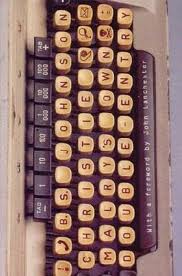Our book group choice for October 2007 is Christie Malry’s Own Double Entry by B.S. Johnson. This is regarded as B.S. Johnson’s most humorous book but it is a dark, sly humour predicated on the distaste Johnson had for an oppressive post-war British society.
It is a metafictional account of a disaffected young man, Christie Malry, who applies the principles of double-entry bookkeeping to his own life, “crediting” himself against society in an increasingly violent manner for perceived “debits”.
Christie Malry is a “simple man” who longs for sex and money. In order to understand how money works, he takes a job in a London bank. This leads him to enroll in a bookkeeping course, where he learns the double-entry system. Bored by his bank job, he quits and starts work at Tapper’s, a sweet factory.
At Tapper’s, Christie is exposed to the harsh realities of the working world. He is underpaid, overworked, and treated with contempt by his superiors. This leads him to become increasingly resentful of society. He begins to apply the principles of double-entry bookkeeping to his own life, “crediting” himself against society in an increasingly violent manner for perceived “debits.”
At first, Christie’s revenge is relatively mild. He scratches the paint on the bank’s facade, and he trips a man on the street. But as his anger grows, so does his violence. He begins to set fires, and he even murders a man.
As Christie’s violence escalates, he also becomes more and more isolated. He loses his job, and his friends and family abandon him. He becomes a loner, living in a squalid apartment and spending his days plotting his revenge.
The novel is also notable for its experimental form. Johnson uses a variety of techniques to disrupt the traditional narrative, including footnotes, interruptions, and changes in typeface. These techniques serve to emphasize the novel’s metafictional nature, and they also contribute to the novel’s sense of alienation and despair.
The novel has been praised for its originality and its dark humor. It has been compared to the work of Samuel Beckett and Franz Kafka. However, the novel has also been criticized for its difficulty and its lack of commercial appeal.
Here are some additional details about the novel:
- The novel is set in London in the early 1970s.
- The novel is narrated by Christie Malry.
- The novel is divided into two parts: “Debits” and “Credits.”
- The novel features a number of experimental techniques, such as footnotes, diagrams, and blank pages.
- The novel has been praised for its originality and its dark humor.
- The novel has been compared to the work of Samuel Beckett and Franz Kafka.
- The novel has been criticized for its difficulty and its lack of commercial appeal.
Discussion Questions
- What is the significance of the title, Christie Malry’s Own Double Entry?
- What are the different ways in which Christie Malry’s powers manifest themselves?
- How does Christie Malry’s relationship with his wife, Joyce, change as his powers develop?
- What is the significance of the character of Mr. Lamb?
- What is the role of violence in the novel?
- How does the novel explore the themes of guilt, responsibility, and free will?
- What is the significance of the novel’s ending?
- How does the novel compare to other works of magical realism?
- What is the novel’s message about the nature of good and evil?
- How does the novel challenge our notions of reality and perception?
- What is the novel’s relevance to the contemporary world?
- What are the novel’s strengths and weaknesses?
- What is your interpretation of the novel’s title?
- What are your thoughts on the novel’s ending?
- What would you change about the novel if you could?

